If you’re worried you’ve exhausted all your Netflix options, look no further. Fordham News asked faculty and staff members for updated suggestions on the best things to read, watch, and listen to for the upcoming winter months. (In case you missed it, check out our last list of faculty recommendations here.)
Films
Jennifer Moorman, Assistant Professor in the Department of Communication & Media Studies
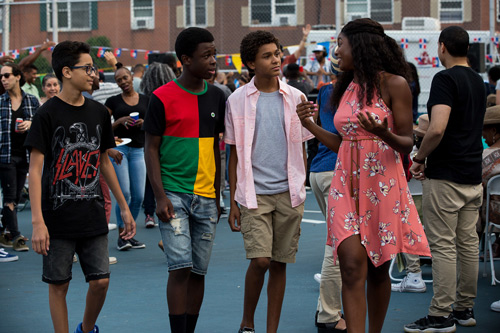
Vampires vs. The Bronx (2020), directed by Osmany Rodriguez
I know Halloween is over, but it’s always horror season for me! This one was actually recommended to me by a student in my Horror Film class, and I found it moving as well as fun. A horror-comedy focused on three boys battling vampires while simultaneously fighting off gentrification in their Bronx neighborhood (an issue that should concern all of us at Fordham), this film has so much heart. It has its share of cheesy moments and clichés, but overall it entertains while reminding us that Black lives matter, our communities are worth saving, and we are stronger together.
Available on Netflix
Bacurau (2019), directed by Kleber Mendonça Filho & Juliano Dornelles
This Brazilian riff on The Most Dangerous Game is a thrilling, powerful, anticolonial tour de force. Warning: It gets pretty graphic. But its messages about the dangers of globalization, imperialism, and white supremacy are as urgent as ever, and will hopefully inspire you to organize in your own community to fight the power. Its meditation on the ways that advanced technologies invade our lives and can hurt as much as they help is particularly relevant in this moment of ever-increasing dependency on digital (and specifically remote-learning) tech.
Available on Amazon
Portrait of a Lady on Fire (2019), directed by Céline Sciamma
Arguably the greatest queer love story (or any love story, for that matter) of the 21st century thus far. Exquisitely shot, each frame is a painting. The compositions are breathtaking, the characters written and portrayed with unusual depth, and the story is incredibly moving and all too relatable for anyone who has a “one that got away.”
Available on Hulu
The Lighthouse (2019), directed by Robert Eggers
This is a great companion piece to Robert Eggers’ previous feature, The Witch (which I also highly recommend). It’s darker and more challenging, but also funnier. Its exploration of the horrors of isolation feels all the more relevant now than at the time of its release, and if you look beneath the surface, you’ll find a biting critique of capitalism and toxic masculinity (and some would say, also a homoerotic love story).
Available on Amazon
Beth Knobel, Associate Professor in the Department of Communication and Media Studies
Broadcast News (1987), directed by James L. Brooks
This is one of my favorite films about television news. It’s also filled with classic moments that speak to the nature of friendship, success, and love. I’ve shown it numerous times to my Fordham students to illustrate the power and limitations of broadcast journalism.
Available on Amazon
Eyes on the Prize: America’s Civil Rights Years 1954-1965 (1987)
Eyes on the Prize II: America at the Racial Crossroads 1965-1985 (1990)
Produced by Henry Hampton
Everyone who wants to understand the roots of the American civil rights movement should spend the time to watch Henry Hampton’s monumental, prize-winning documentary series Eyes on the Prize. Its 14 parts, produced as two series, explore the major moments of the movement, from school desegregation, to the fight for voting rights, to the elections of Black politicians in major cities like Chicago. It’s engrossing and important.
Available on Amazon
Brandy Monk-Payton, Assistant Professor in the Department of Communication and Media Studies
Time (2020), directed by Garrett Bradley
This award-winning experimental documentary by Garrett Bradley is a beautiful and intimate portrait of a Black family that follows Sybil “Fox Rich” Richardson as she fights for over 20 years to free her husband from his prison sentence. Using interviews as well as Rich’s own homemade videos, the film is a brilliant love story in an era of mass incarceration.
Available on Amazon
Television Shows
Brandy Monk-Payton
The Queen’s Gambit (2020)
Based on a 1983 novel of the same name, this limited series is a coming-of-age story about Beth Harmon, an orphan who also happens to be a chess prodigy. Set during the Cold War, Beth defies the odds as a female player who gains widespread public attention winning in a male-dominated sport, while also privately battling addiction. Watch for the mesmerizing scenes of chess play.
Available on Netflix
Grand Army (2020)
This gritty young adult drama series is set in Brooklyn and follows a multicultural ensemble of teenagers as they confront issues of identity at their prestigious public high school. At times difficult to watch due to its themes, the film has vivid characters and stellar performances by the young cast.
Available on Netflix
Jacqueline Reich, Professor in the Department of Communication and Media Studies
My Brilliant Friend (2018-present)
There are two seasons available of this amazing adaptation of Elena Ferrante’s four novel series set in Naples beginning in 1945. Most of the actors are non-professional, and there are wonderful echoes to Italian neorealism and other film traditions. It is compelling storytelling at its best, and when we can’t travel to Italy, the series transports us there.
Available on HBO
Borgen (2010-2013)
Borgen is probably one of the most highly praised international television series in recent memory, and Netflix subscribers can now see it for the first time. It revolves around the first Danish female prime minister and her family as she adapts to her new role. You will be riveted. Also along these lines on Netflix is The Crown, with Season 4 having just been released.
Available on Netflix
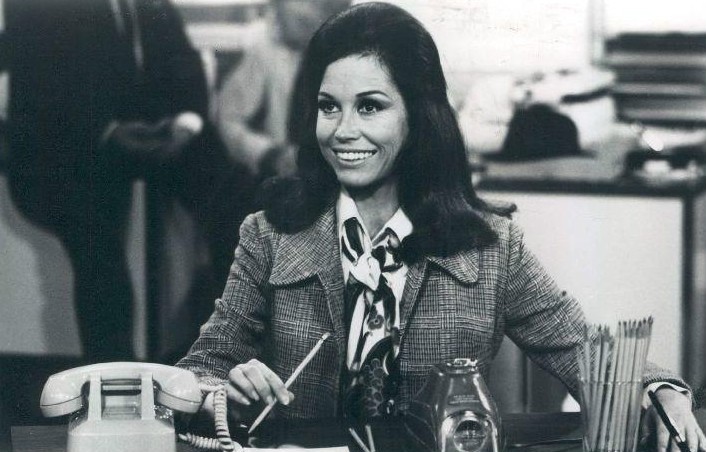
The Mary Tyler Moore Show (1970-1977)
One of the pioneering television series of the 1970s, Mary Tyler Moore plays Mary Richards, a single career woman living in Minneapolis. It was one of the first shows to feature work life and home life (modeled after The Dick Van Dyke Show, also starring Moore), and spawned several spinoffs (Rhoda, Phyllis, Lou Grant). I watched all seven seasons during the worst of the quarantine, and Mary’s sunny disposition and optimism were just what I needed. For a great companion read, I recommend the book Mary and Lou and Rhoda and Ted by Jennifer Kieshin Armstrong, which tells the background story behind the scenes.
Available on Hulu
Clint Ramos, Assistant Professor of Design and Head of Design and Production

Alone (2015-present)I love it because it shows you how we really need socialization.
Available on Netflix
Street Food (2019)
It’s set both in Asia and Latin America. I love it because it’s not about the food, it’s about the people who make the food.
Available on Netflix: Asia and Latin America
Beth Knobel
Occupied (2015-2017)
This multilingual Norwegian three-season television series revolves around a Russian invasion of Norway over energy resources. As someone who spent 14 years living in Moscow, working as a journalist, I was glued to the edge of my seat by the portrayal of the Russians and the twists and turns in this biting political thriller.
Available on Netflix
Books
Heather Dubrow, Professor of English; John D. Boyd, S.J. Chair in the Poetic Imagination; and Director, Reading Series, Poets Out Loud
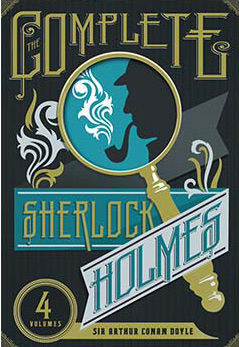 Detective fiction and crime fiction in general! Long-standing favorites include Sherlock Holmes and Ed McBain, especially the ones about the 87th precinct, which I enjoy not least because they are set in New York.
Detective fiction and crime fiction in general! Long-standing favorites include Sherlock Holmes and Ed McBain, especially the ones about the 87th precinct, which I enjoy not least because they are set in New York.
Michael Connelly has been another favorite for some years—partly because of how the values of the detective are represented (he repeatedly evokes police work as a “mission”) and also because of how the relationship with his daughter has developed in the course of the series. But OK, I’ll let the cat out of the bag: I’m writing a critical article on Connelly, which demonstrates that I need to try harder to follow the advice I give my students about getting away completely from academic work occasionally.
The Remains of the Day by Kazuo Ishiguro
What an extraordinary eye and ear he has for English culture.
Seamus Heaney
Not surprisingly, I keep returning to Heaney, virtually any of his poetry books and prose too.
Why I Am Not a Toddler by Cooper Bennett Burt
Given our troubled times I’d recommend for light reading, especially to people who enjoy some of the originals, the parodies of golden oldie poems Stephanie Burt claims were written by her infant son. One of my favorites there is in fact a riff on the Bishop poem that is itself one of my favorites, “One Art.” [Bishop’s compelling lament, “The art of losing isn’t hard to master” becomes the kid’s “The art of mouthing isn’t hard to master . . . And look! my last, or / next to last, of three big crayons…”]
Art Deco Chicago: Designing Modern America by Robert Bruegmann (Editor)
I love reopening and flipping through art books, including catalogues of exhibits to which I’ve gone. Art deco means a lot to me, and right now that bedside table also includes a book on deco mailboxes, a sub-sub genre of art deco design no doubt. And I often revisit a couple of books I have on the lacquer creations and other work of Zeshin—wow.
Music
Chuck Singleton, General Manager, WFUV
WFUV’s The Joni Project, which features artists covering songs by iconic singer-songwriter Joni Mitchell

Our Stress-Free Soundtrack pandemic playlist
The EQFM “Album ReCue” series, on landmark albums from women, which includes Spotify playlists of every album and Alisa Ali’s conversation with WFUV DJs
George Bodarky, News Director, WFUV
Everyone should have Nina Simone’s “O-o-h Child” on their playlist, especially now.
But really tapping into ’70s R&B has been uplifting, including “Shining Star” from Earth, Wind & Fire.
Anne Fernald, Professor of English and Women’s, Gender, and Sexuality Studies
Every summer, my family and I make a summer playlist. The rule is that it has to be brief enough to fit on a CD (so 100 minutes or so) and that it should capture the mood of the summer. We spend our summers up on the New York side of the Canadian border, listening to a lot of CBC 2. Their smooth-voiced nighttime DJ is a musician called Odario Williams, and his “Low Light (In This Space)” is a song that captures the hopes and aspirations coming out of #BlackLivesMatter.

Also on that playlist was Phoebe Bridgers’ “Kyoto,” which is both heart-breaking and inspiring and just grows and grows on me.
And I am always charmed by the Swedish song “Snooza” by Säkert! It’s (apparently) about urging your lover to hang out and snooze a little longer. It’s a very cheerful pop song in a language I don’t speak and one of those gifts from the algorithm: a “you might like” song that I love.
]]>The group’s last reading of the season featured poet Tyehimba Jess, who read from his second book Olio, which won the 2017 Pulitzer Prize in poetry. Also reading were three teen students who took part in Poets Out Loud’s high school outreach program.
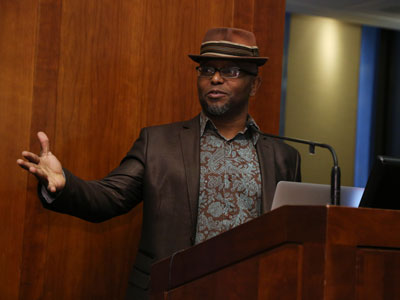
Jess—known for his poetry slam skills—read from his series of sonnets on conjoined twins who were born into slavery, made to perform in freak shows, and eventually earned enough money to buy the land where they had been slaves. (See him read from these sonnets at a Tedx talk.)
Heather Dubrow, Ph.D., Fordham’s John D. Boyd, S.J., Chair in the Poetic Imagination and director of the Poets Out Loud reading series, said having an accomplished poet like Jess was a great way to end the season.
“We were delighted to have Pulitzer Prize winners at both the beginning and the end of this year’s series,” she said, referring to poet Kay Ryan, who read in October.
“We like to represent poets at all stages of their careers, from emerging writers to very distinguished ones. It was wonderful to include Tyehimba Jess, not only because he is distinguished but because of what he offers in other ways. The poetry is splendid; it draws attention to many contemporary experiments with poetry and it engages with historical issues and some of the most shameful issues in our country’s history.”
Jess had a tough act to follow. Before he took the mic, the high school students got up to read their work, which dealt with issues both personal and global. Laurynn Laurore, an 11th-grade student from East Side Community High School, read her poem “Music”:
Music
Music wrapped around the peaks of my ears
And placed a kiss on my ear drums
The sounds bounced up and off the shaking of my hips
To cascade down my body
You watched in amazement
You had never seen me like this
So completely lost in something
You might have been a bit jealous
This is what I wanted for you
To get lost in the magic of music
So I pulled you close and sung the tune in your ear
Hoping it would kiss you too
Hoping it would flow through you
And teach you how to move with me
Laurore was joined by Alesha Alli, from Bronx Early College Academy, and Deliana Rosario, from the School for Excellence.
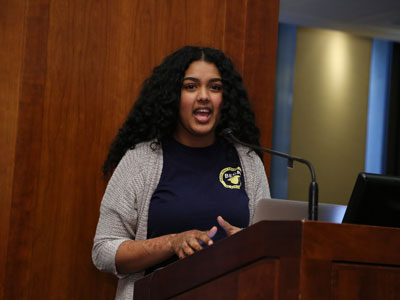
In a loud, strong voice, Alli read from her poem called “Perspective”: “We complain about the rain/and when our food is too plain/While there’s children in Africa/ suffering endless pain.”
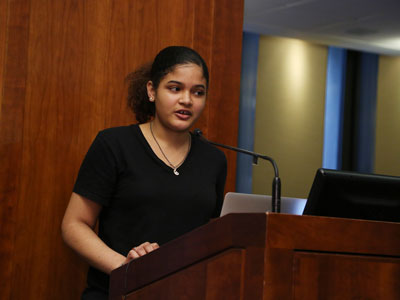
Rosario read softly from her poem, which focused on a relationship: “You’ll never know my story/because it’s never been told/Maybe it’s just toxic/the little hope that we hold.”
Poets Out Loud’s high school outreach program, started by Dubrow in 2009, aims to fosters an interest in reading, writing, and listening to poetry among high school students in underserved communities in the city.
Just before each event in the reading series, these students gather for a workshop—run by a Fordham graduate student—on the poets who are going to read. The poets themselves join for the final 10 minutes. Then the students join the audience for the reading.
Dubrow said that many audience members express how they never thought they were interested in poetry, but that their teachers encouraged them come to the event and that got them excited about future readings.
“The series is challenging and exciting because we bring poetry to so many people, both those who have long been seriously involved with it and those who, through the readings, realize how much it has to offer,” said Dubrow.
]]>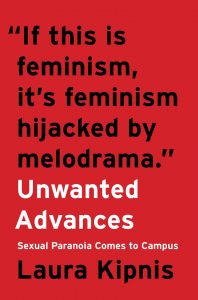
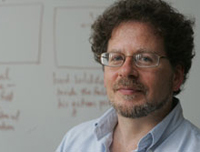 Leonard Cassuto, Ph.D., professor of English and American Studies and author of The Graduate School Mess: What Caused It and How We Can Fix It (Harvard, 2015)
Leonard Cassuto, Ph.D., professor of English and American Studies and author of The Graduate School Mess: What Caused It and How We Can Fix It (Harvard, 2015)
“At the top of my summer book stack is Laura Kipnis’ new book, Unwanted Advances: Sexual Paranoia Comes to Campus (Harper, 2017). Kipnis’ investigation of the Title IX excesses on many American campuses has a personal side: When she wrote an article about a Title IX investigation at her own university, she found herself the subject of an investigation, too–and that inquiry helped to inspire this book. This is a book about current events, indeed.”
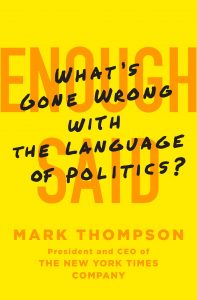
 Bill Baker, Ph.D., director of the Bernard L. Schwartz Center for Media, Public Policy, and Education
Bill Baker, Ph.D., director of the Bernard L. Schwartz Center for Media, Public Policy, and Education
“My summer reading gets a double dip as I read sitting in the lantern room of a lighthouse we care for in Nova Scotia (Henry Island). This year I’ll be reading Enough Said (St. Martin’s Press, 2016) by Mark Thompson, the New York Times Company president and former BBC Director General. He has written a powerful book about what’s gone wrong with the language of politics. I’ll also be reading The Naked Now (The Crossroad Publishing Company, 2009) by Richard Rohr, a Franciscan friar who writes some of the most powerful meditative philosophy I’ve ever read. A lighthouse is a good place to read about God and the spiritual light.”
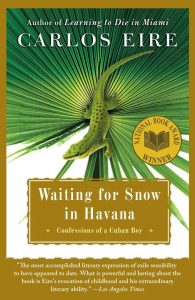
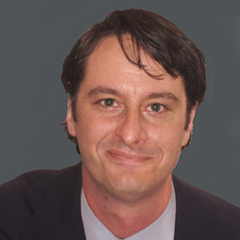 James McCartin, Ph.D., associate professor of theology
James McCartin, Ph.D., associate professor of theology
“As a father of three young kids, I’ve grown to appreciate books that offer a window into how children see the world–maybe in an effort to figure out my own kids. Therefore, my summer reading season begins with two childhood memoirs. The first is Maurice O’Sullivan’s Twenty Years a-Growing (J.S. Sanders Books, 1998), set on a remote island in the southwest of Ireland a century ago, and the second will be Carlos Eire’s Waiting for Snow in Havana (Free Press, 2004) which narrates his story as an immigrant growing up between Cuba and the United States in the 1960s. Then, I’ll pick up a book I started last summer but put down as the school year began, Fyodor Dostoyevsky’s The Brothers Karamazov. As to Dostoyevsky, I’ve long been embarrassed to say that I’ve never read him, so now’s my chance to put the embarrassment behind me.”
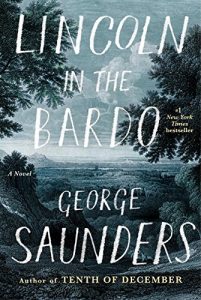
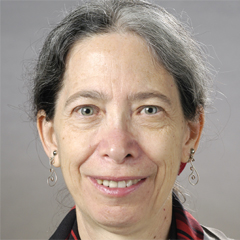 Heather Dubrow, Ph.D., John D. Boyd, S.J. Chair in Poetic Imagination and the director of Poets Out Loud
Heather Dubrow, Ph.D., John D. Boyd, S.J. Chair in Poetic Imagination and the director of Poets Out Loud
“A growing pile of books in my field has been staring at me balefully from my night table for some time, and before they topple over I hope particularly to read more sections of two of them that I have dipped into only briefly before: Brian Cummings’ The Literary Culture of the Reformation (Oxford, 2002) and Reuben Brower’s Fields of Light (Greenwood Press, 1980). I am in the middle of an extraordinary magical realist novel, George Saunders’ Lincoln in the Bardo (Random House, 2017), as well as some volumes of poetry, such as Alicia Ostriker’s latest, Waiting for the Light (University of Pittsburgh Press, 2017).
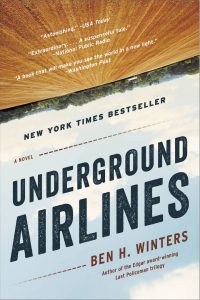
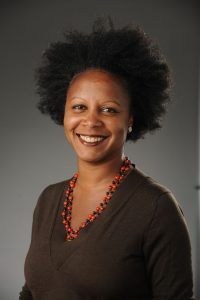 Christina M. Greer, Ph.D., associate professor and associate chair of the political science department
Christina M. Greer, Ph.D., associate professor and associate chair of the political science department
“Since I am preparing to write a lot this summer, I tend to read fiction to help me ‘hear’ language better. Right now I am finishing a series of short stories by Mia Alvar, In the Country (Oneworld Publications, 2016) about Filipino migrations and relationships. I plan on finishing Luther Campbell’s’ memoir The Book of Luke: My Fight for Truth, Justice, and Liberty City (HarperCollins, 2015) about Liberty City, Miami, Florida. He’s a controversial figure, but his analysis of residential racism and segregation in Miami is fascinating. I am also going to read Underground Airlines (Random House, 2016) by Ben Winters, an alternative history of life in the U.S. had the Civil War never happened. [And] since I am teaching Congress in the fall, I’ll likely begin rereading Robert Caro’s Master of the Senate (Vintage Books, 2003), about my favorite president and brilliant congressman, LBJ.”
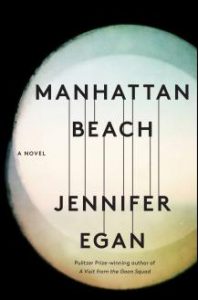
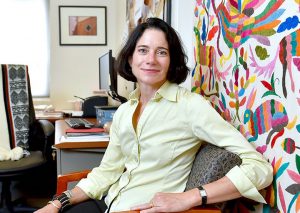 Barbara Mundy, Ph.D., professor of art history
Barbara Mundy, Ph.D., professor of art history
“My summer reading list is heavy with books on cities, a topic I’ve written a lot about. At the top is Jennifer Egan’s Manhattan Beach (Simon & Schuster, 2017), a novel set in New York in the 1940s, and I’m getting ready to devour it as soon as I get through my end-of-year reports. David Lida is a Mexico-City-based writer; I can dip into his book of short essays, Las llaves de la ciudad (Sexto Piso, 2008) [Keys to the City], whenever I need to be transported to one of my favorite cities in the world. And then there’s Small Spaces, Beautiful Kitchens (Rockport Publishers, 2003) by Tara McLellan; I’m downsizing to an apartment and trying to figure out how to cram all my cooking gear (fermentation is much on my mind) into a smaller space.”
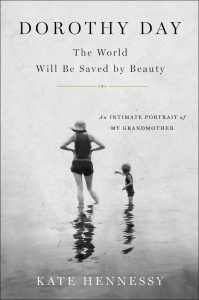
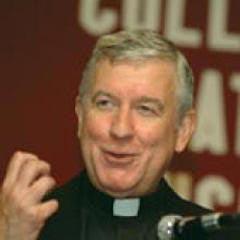 Robert Grimes, S.J., dean of Fordham College at Lincoln Center
Robert Grimes, S.J., dean of Fordham College at Lincoln Center
“The number one book on my summer reading list is Dorothy Day: The World Will Be Saved By Beauty (Scriber, 2017), by Dorothy Day’s granddaughter Kate Hennessy. When I was a high school student at Xavier, we sometimes went to the Catholic Worker House on the Lower East Side, and I had the honor to meet Dorothy Day a couple of times. When Kate Hennessy spoke at the Fordham Rose Hill campus this year, I was unable to attend, so I’ll make up for missing that event with reading her book.”
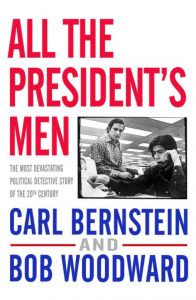
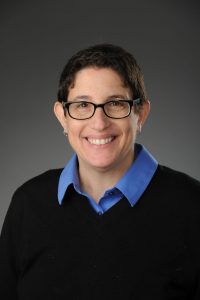 Laura Wernick, Ph.D., professor of social work in the Graduate School of Social Service
Laura Wernick, Ph.D., professor of social work in the Graduate School of Social Service
“Given our political climate and the rise of the alt-right, coupled with ongoing investigations and hearings surrounding Russia and Donald Trump’s campaign, my reading list is focused upon understanding this context and history. Having just read Dark Money and Trump Revealed (Doubleday, 2016), my summer reading list has included All the President’s Men (Pocket Books, 2005) and The Final Days (Simon & Schuster, 2005), along with Masha Gessen’s The Man Without a Face (Riverhead Books, 2012), a critical read to understand the rise and power of Putin. I plan on following this with a series of edited volumes about hope and moving forward from the resistance movement.”
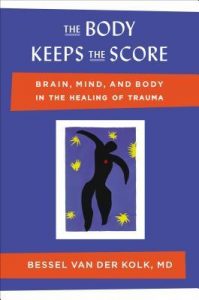
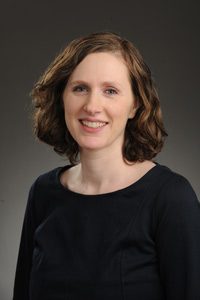 Mary Beth Werdel, Ph.D., associate professor of pastoral counseling and director of the Pastoral Care and Counseling program at the Graduate School of Religion and Religious Education
Mary Beth Werdel, Ph.D., associate professor of pastoral counseling and director of the Pastoral Care and Counseling program at the Graduate School of Religion and Religious Education
“I will be reading The Body Keeps the Score: Brain, Mind, and Body in the Healing of Trauma (CreateSpace Independent Publishing Platform, 2015) by Bessel van der Kolk. The book examines holistic approaches to trauma work. I’m interested in the way that spirituality relates to stress related growth, which is the examination of positive psychological consequences of moving through stress. I have a book contract related to the topic. This book touches on related themes of trauma and whole body healing.”
–Veronika Kero
]]>
Gary Keenan, a New York City poet who was chosen as the POL prize winner for his manuscript Rotary Devotion, and New Englander Michael Snediker, winner of the Editor’s Prize for his manuscript The New York Editions, who is currently teaching in Houston. Next fall Fordham University Press will publish the winners’ submissions, and a book launch will be held.
After the sudden and tragic death of the poet C.D. Wright, who had been chosen to decide this year’s POL prize winner, fellow poet Alice Fulton was asked to step in as a judge. On Keenan’s Rotary Devotion she wrote: “Rotary Devotion is deeply attentive to the rigors and joys of being alive, and it conveys this consciousness with delicacy and wit.”
POL co-director Elisabeth Frost, Ph.D., who edits the book prize series, selected Snediker as the Editor’s prize winner and wrote: “I am familiar with no other poet who creates such a sensual and embodied language, while at the same time providing such intellectual richness.”
Founded in 1999, the POL book prize series selects between hundreds of entries each year. Two are published. “We receive manuscripts of extraordinary quality and beauty,” writes Frost. “We truly regret that our resources do not allow us to publish more volumes.”
POL co-director Heather Dubrow, Ph.D., assisted in the competition as a preliminary reader, and screened over 25 entries. “Any screener of these manuscripts realizes how much first-rate poetry there is out there, and hence what an honor it is to win or be listed as a finalist,” she said. “The prize books bring national visibility to the POL program.”
In 2017 the Poets Out Loud reading series will celebrate its 25th anniversary. The series hosts free public readings at Fordham’s Lincoln Center campus, wherein poets are invited to read their work to an audience. You can learn more about these events here.
– Kiran Singh
]]>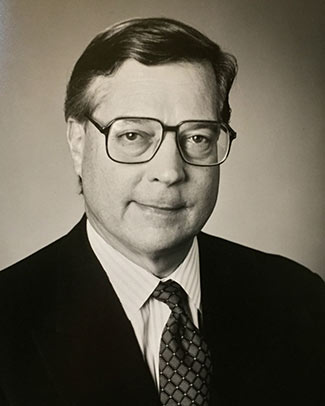
“We have lost one of the great ones today,” said Joseph M. McShane, S.J., president of Fordham. “He was so many things: a thoughtful and highly effective member of the Board of Trustees, a generous benefactor, and a dear friend. He was a man of great love and great integrity, and was singularly devoted to his family and the University. I know the Fordham family joins me in keeping his loved ones in their thoughts and prayers.”
Born in New York City on July 21, 1942, Bepler first encountered the Jesuits after his family moved to Seattle, Washington and joined a Jesuit parish, where he became an altar boy. That spiritual introduction grew into a lifelong intellectual relationship with the Jesuits that began at Seattle Preparatory School and culminated in a return to New York and enrollment at Fordham.
Two uncles and an elder brother, Peter, preceded him at the Rose Hill campus.
“They ask why on the important questions,” he once said of the Jesuits. “They’re willing to ask why, even if they don’t get the answers they want.”
At Fordham, Bepler worked six days a week, played intramural sports, and sang in the glee club, all while studying Greek and Latin. He graduated with a bachelor’s degree in classics.
Bepler’s career as an investment professional spanned nearly five decades. After earning his M.B.A. at Columbia University School of Business in 1966, he began his career at Brown Brothers Harriman & Co. in the investment advisory department. He joined Capital Group in 1972 and remained there for four decades, rising to senior vice president and director at the company’s Capital Research Global Investors division.He also held positions as an equity portfolio manager at American Funds Washington Mutual Investors Fund, Capital World Growth and Income Fund, and EuroPacific Growth Fund. He and his EuroPacific Growth team were twice (1999 and 2009) recognized by Morningstar’s “Fund Manager of the Year” Awards in the international stock arena. In addition to his financial work, Bepler taught a course at Stanford University for more than a decade.
“Throughout his 40-plus year career at Capital Group, Steve embodied our core values. He operated with the highest integrity, was a collaborative partner with his colleagues, and made all decisions with the investor in mind. I speak on behalf of many of our long-tenured colleagues and retirees, when I say that he will be missed,” said Tim Armour, chairman and chief executive officer of Capital Group.
“Steve Bepler was a trusted colleague and a very astute businessman,” said Robert Daleo, GABELLI ’72, chairman of the Fordham Board of Trustees. “My heart goes out to Kim and his family on their great loss. Steve was generous with his time and gifts, and both genial and straightforward in his relations with his colleagues on the Board. I will miss his wisdom and his good company.”
Bepler and his wife, Kim, were married 14 years ago. The couple gave generously to a variety of educational institutions and causes, including the Archdiocese of New York, New York Nativity Schools, and Cristo Rey New York High School in Harlem. Bepler was also a benefactor and board member of the Forman School in Litchfield, Connecticut, Barnard College, the Inner-City Foundation, the Washington Theological Union in Washington, D.C., and Fairfield University in Connecticut. Bepler had struck up a friendship with Fairfield’s president, Jeffrey von Arx, S.J., when Father von Arx was the dean of Fordham College at Rose Hill.
Bepler held several leadership positions during his tenure on Fordham’s Board of Trustees, including chair of the Student Affairs Committee, vice chair of the Mission and Identity Committee, and member of the Executive Committee. He also served as a trustee of Barnard College.
At Fordham, the couple created several scholarships, supported science education, and gave generously to the Fordham Fund. Their generosity also had an impact on several Rose Hill buildings, including the University Church, where the couple contributed toward its restoration. Two years ago, their philanthropy was recognized with the naming of Bepler Commons at Faber Hall. The Beplers are among the three largest donors to the University.
“Steve was a quiet and generous philanthropist,” said James Buckman, FCRH ’66, a member of the Fordham Board of Trustees. “While a leading benefactor of Fordham University and other Jesuit apostolic enterprises, one would rarely find his name associated with them. He preferred to endow a university chair in the name of a favorite Jesuit teacher than his own. He will be sorely missed.”
When the University honored the couple with the Fordham Founder’s Award in 2007, Kim, a successful businesswoman in her own right, spoke of her husband’s affinity for, and devotion to, his alma mater.
“I love my husband and his love of all things Fordham,” she said.
At the 2014 commencement ceremony, Bepler received the University’s highest honor: a Doctor of Humane Letters.
Throughout his life, Bepler credited the Jesuits with laying the groundwork for his success in life. He specifically honored the educators so dear to his heart by endowing two Fordham faculty chairs: the John D. Boyd, S.J., Chair in Poetic Imagination and the Karl Rahner, S.J., Memorial Chair in Theology.
Father Boyd, one of Bepler’s professors, was a distinguished scholar whose work focused on the poetic imagination and its relationship to life.
“His was the third class I ever took at Fordham,” Bepler said in 2009, speaking at an inaugural ceremony to launch the chair. “He loved to teach. He made everything interesting, which is such an important and rare quality in an educator.”
“His love of poetry was apparent both in our conversations and in his endowing a chair with the splendid tile, ‘Chair in the Poetic Imagination,’” said Heather Dubrow, Ph.D., the holder of the John D. Boyd, S.J. Chair in the Poetic Imagination at Fordham. “I will always be grateful to Stephen and Kim Bepler for enabling me to come to Fordham.”
As avid art and antique collectors, the couple traveled extensively throughout Europe and Asia.
In addition to his loving wife, Kim, Bepler is survived by three children from a previous marriage, Bettina, Peter, and Galen; his brother Peter, and sister, Cathy; and two grandchildren. He also leaves behind three dogs, to which he was devoted.
“We all come to this end point in our lives. But I have known preciously few who have spent willingly their entire lives in full conscious preparation for this moment,” said John Kehoe, FCRH ’60, FCLC ’85, a Fordham trustee. “Steve was such a rare person. His generosity of spirit in all things was as effusive as the quickness of his wry wit and humor. He treasured the gift of his early Jesuit education and, as a true disciple, labored to extend it to as many young people as he could in as many ways as he could find to do so, right to the end of his life. Because of that, and of his wife, Kim, having shared fully in that journey, his work and spirit will continue to live and be remembered long into the future.”
]]>Practically speaking, this statement represents an ill-mannered remark indicating one’s dislike of a particular aunt. Grammatically, the statement offers an example of the linguistic term “deixis.”
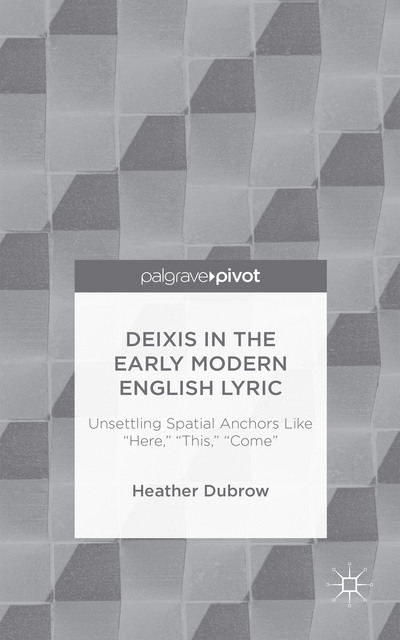 A new book by English Professor Heather Dubrow, PhD, the Rev. John Boyd, SJ Chair in the Poetic Imagination, focuses on deictic, or “pointing” words—for instance, this/that, here/there, come/go, or now/then. These words point to particular people, places, or time, but their meanings depend on the context in which they are used.
A new book by English Professor Heather Dubrow, PhD, the Rev. John Boyd, SJ Chair in the Poetic Imagination, focuses on deictic, or “pointing” words—for instance, this/that, here/there, come/go, or now/then. These words point to particular people, places, or time, but their meanings depend on the context in which they are used.
“Despite how technical and narrow the term makes it sound, it is really central to many texts and to everyday life,” said Dubrow, who is also the director of Fordham’s Poets Out Loud reading series. “People use deixis all the time whether or not they know the term.”
In Deixis in the Early Modern English Lyric: Unsettling Spatial Anchors Like “Here,” “This,” “Come” (Palgrave Macmillan, 2015), Dubrow examines how 16th- and 17th-century authors such as Donne and Shakespeare used deictic words. In one respect, deixis could help establish binaries—“here” versus “there,” “now” versus “then.” However, deixis could also serve to interrupt those binaries.
“‘Here’ is not only contrasted to ‘there,’ but also may be part of a spectrum that runs from right here, to a little closer, to further away but still relatively close, etc.,” Dubrow said.
Because of this, deictic words had important functions in the texts, she said, such as negotiating “cultural pressures, possibilities, and tensions” within topics ranging from English attitudes to theological debates.
One chapter discusses deixis as it pertains to religion and spirituality. Pointing words can be problematic when talking about a spiritual dimension. One might say that heaven is “here” or “there,” but what is meant by that? Does that mean heaven is a physical location situated in a particular place?
“Critics often talk about how deixis embodies or reflects preexisting attitudes,” Dubrow said. “I’m also interested in how it creates attitudes.”
Dubrow’s book is part of Palgrave’s Pivot series, an initiative that quickly disseminates academic research via digital publishing, as well as offering the customary hardcover edition. The series publishes works between 25,000 and 50,000 words—longer than a journal article, but shorter than most full-length books—within three months of a manuscript’s completion, allowing for new research to reach the public as swiftly as possible.
]]>Pardlo took home the 2015 Pulitzer Prize for Poetry for Digest (Four Way Books, 2014), and his poems, reviews, and translations have appeared in The American Poetry Review, Poet Lore, Harvard Review, and National Public Radio.
A native of Bedford-Stuyvesant, Brooklyn, his poems range from pointedly arcane tomes that poke fun at academic discourse to intensely personal poems about shopping for groceries with his daughter or his anxieties about fatherhood.
Flynn’s most recent publication, The Reenactments (W.W. Norton & Company, 2013) chronicles his experience during the making of Being Flynn, a film based on his 2004 memoir, Another Bullshit Night in Suck City (W.W. Norton & Company, 2005).
He is also the author of three collections of poetry, including Some Ether (Graywolf Press, 2000), winner of the PEN/Joyce Osterweil Award for Poetry in 1999, Blind Huber (Graywolf Press, 2002), and The Captain Asks for a Show of Hands (Graywolf Press, 2011).
“Although these poets are different in many ways, in both cases, they precisely observe details of everyday life are electrified with biographical undertows and with allusions to national and cultural problems,” said Heather Dubrow, director of Poets Out Loud and the John D. Boyd, SJ Chair in the Poetic Imagination.
The event, which is co-sponsored by the Poetry Society of America (PSA), is part of Fordham’s Poets Out Loud reading series.
The readings will be followed by a panel discussion lead by PSA executive director Alice Quinn, and a drawing for a free inscribed copy of a book by the poets.
For more information, contact Heather Dubrow at (212) 636-6792 or [email protected]
]]>
Congratulations to three members of Fordham University’s Department of English, who have each published a new volume of poetry—all within a month of each other (more or less).
The authors are Heather Dubrow, Ph.D., John D. Boyd, S.J., Chair in the Poetic Imagination (left), Elisabeth Frost, Ph.D., associate professor of English and Women’s Studies (center), and Janet Kaplan, Fordham’s poet-in-residence (right).
 Dubrow’s book, Forms and Hollows (Cherry-Grove Press, 2011), includes poems in a range of forms as well as free verse. Its subjects also range widely, including the death of a parent, the cities of Paris, Sydney, and New York, and the everyday topics of teaching and food (herbs, bread). The publisher states that “Dubrow writes with a quiet, intimate sensibility that hits similar notes whether she is writing a dramatic monologue or a personal lyric.”
Dubrow’s book, Forms and Hollows (Cherry-Grove Press, 2011), includes poems in a range of forms as well as free verse. Its subjects also range widely, including the death of a parent, the cities of Paris, Sydney, and New York, and the everyday topics of teaching and food (herbs, bread). The publisher states that “Dubrow writes with a quiet, intimate sensibility that hits similar notes whether she is writing a dramatic monologue or a personal lyric.”
You can read more at http://www.cherry-grove.com/dubrow.html
 Frost’s debut collection of poetry, All Of Us, (White Pine Press, 2011) is described as “narrative prose poems that explore misfires of communication, gaps in memory, and the simple limitations of language that cause frustration and isolation. The title poem explores a cityscape where community is vertically compressed, and strangers – who are also neighbors – appear eye-to-eye at the peep holes of their locked doors.”
Frost’s debut collection of poetry, All Of Us, (White Pine Press, 2011) is described as “narrative prose poems that explore misfires of communication, gaps in memory, and the simple limitations of language that cause frustration and isolation. The title poem explores a cityscape where community is vertically compressed, and strangers – who are also neighbors – appear eye-to-eye at the peep holes of their locked doors.”
For more on the book visit http://www.spdbooks.org/Producte/9781935210238/default.aspx
 Lastly, poet Janet Kaplan has published a third collection of poetry, Dreamlife of a Philanthropist (Notre Dame, 2011), which won the Ernest Sandeen Prize in Poetry, sponsored by the creative writing program at Notre Dame.. The poems and sonnets are “packed with postmodern language-leaping, modern irony and absurdity, and a poet’s ageless ear for the pleasures of the lyric and formal experimentation,” the publisher writes. The award is given annually to writers who have published at least one volume of poetry. For more information visit http://undpress.nd.edu/book/P01472
Lastly, poet Janet Kaplan has published a third collection of poetry, Dreamlife of a Philanthropist (Notre Dame, 2011), which won the Ernest Sandeen Prize in Poetry, sponsored by the creative writing program at Notre Dame.. The poems and sonnets are “packed with postmodern language-leaping, modern irony and absurdity, and a poet’s ageless ear for the pleasures of the lyric and formal experimentation,” the publisher writes. The award is given annually to writers who have published at least one volume of poetry. For more information visit http://undpress.nd.edu/book/P01472
Perhaps these talented poets will show up on Thursday, March 24, when Poets Out Loud hosts its Fordham Faculty Reading at 7 p.m. in the 12th Floor Lounge of Lowenstein Center.
—Janet Sassi
]]> Edward Hirsch published his first book of poetry in 1981. On April 14, Hirsch shared the limelight with poets who were born a full decade after that book was released.
Edward Hirsch published his first book of poetry in 1981. On April 14, Hirsch shared the limelight with poets who were born a full decade after that book was released.
Hirsch, director of the Guggenheim Foundation, had some advice for poets from the Cristo Rey and LaGuardia high schools in Manhattan and the GirlsWriteNow mentoring program.
“We get things from poetry that we can’t get from other places. There’s a special kind of thinking that takes place in poetry that isn’t in other places,” he said. “I hope you’ll protect it, preserve it, explore it, use it and carry it forward.
“We live in an unprecedented situation of celebrity culture, 24-hour newsmedia, 840 cable channels and an amazing amount of technology. But no one is really paying attention,” he said. “Poets pay attention.”
Hirsch, whose appearance at the 12th Floor Lounge at Fordham’s Lincoln Center campus marked final the Poets Out Loud event of the academic year, read selections from The Living Fire: New and Selected Poems 1975-2010 (Knopf Doubleday, 2010).
His first reading “set” followed poems by Sarah Schwartz, a Fordham graduate student who is a teacher at LaGuardia, and five high school students. His second began after poems by three more high school students
As he delivered poems such as “Self Portrait,” “A New Theology” and “Boy with a Headset,” Hirsch salted in tidbits about the works.
“Fast Break,” a poem that he said was meant to imitate a fast break in basketball, is a memorial poem for his friend Dennis Turner, who was diagnosed with liver cancer in 1984.
“I had the weirdest experience last week. I got a call in my office from a high school class in Idaho. They had read “Fast Break” and didn’t know who Dennis Turner was, so they decided to ask me,” he said. “I thought that was so cool. So if you have any questions about my poems, feel free to call and I’d be happy to clear it up for you.”
Heather Dubrow, Ph.D., the John D. Boyd, S.J., Chair in Poetic Imagination and director of Poets Out Loud, praised Hirsch’s commitment to fostering the careers of less well-established poets.
“’The Beginning of Poetry,’ which is the opening poem in Edward Hirsch’s Living Fire, is about loneliness and isolation, which are aptly represented by a train whistle,” Dubrow said. “This is a poet who writes repeatedly about the lonely and longing—lonely and longing bodies, houses, awkward situations. Many of the other preoccupations in his poetry represent, and often function as, alternatives and antidotes to loneliness and gawkiness.”
]]> Poet Leslie C. Chang will read from her work, including excerpts from her new book, Things That No Longer Delight Me (Fordham University Press, 2010), on March 23 at the Lincoln Center campus.
Poet Leslie C. Chang will read from her work, including excerpts from her new book, Things That No Longer Delight Me (Fordham University Press, 2010), on March 23 at the Lincoln Center campus.
“Evoking sensations ranging from the sight of ancient statuary to the taste of dried watermelon seeds, these extraordinary poems are rooted both in the specificities of Asian and Asian-American experience and in broader questions about memory and loss,” said Heather Dubrow, Ph.D., John Boyd S.J. Chair in Poetic Imagination and director of Poets Out Loud.
Award-winning poet Eamon Grennan said of Chang’s work, “In their mixture of tenderness, delicacy of observation, a feel for textures, and a refined and refining intelligence, all brought to bear by a robust sensibility that doesn’t flinch in the face of the harder matters of absence, loss, and grief, the poems of Leslie Chang compose a complete, remembered, lived-in world.”
Leslie C. Chang
Poets Out Loud
Tuesday, March 23, 2010 | 7 p.m.
12-Floor Lounge, Lowenstein Center, Lincoln Center Campus
113 W. 60th St., New York, N.Y.
Free and Open to the Public
(See a sample of Chang’s work, “In the Language of the Here and Now,” on Fordham’s newsblog.)
The reading is part of Fordham University’s Poets Out Loud series. This year the series concludes with a special reading by Edward Hirsch and high school poets, on Wednesday, April 14, at the Lincoln Center campus. Hirsh is a distinguished poet and director of the Guggenheim Foundation. He will be reading with student poets chosen by the Cristo Rey and LaGuardia schools, and by the GirlsWriteNow program, which pairs at-risk young women and mentors.
]]> The question of what makes Irish poetry such a revered art form is one that Eamon Grennan answered with the following construct: the Irish people, said the poet, have an “innate appetite for language and appreciate the good use of it.”
The question of what makes Irish poetry such a revered art form is one that Eamon Grennan answered with the following construct: the Irish people, said the poet, have an “innate appetite for language and appreciate the good use of it.”
It must have pleased Grennan when the Fordham community revealed its own appetite for his poetry by coming out during the season’s worst storm for his Feb. 25 reading at the Lincoln Center campus.
The Dublin-born poet read his work at “Spotlight on Irish Poetry,” sponsored by Fordham’s Poets Out Loud, along with poet/critic Stephen Burt and Fordham graduate student Katy Kahn. Outside, large snowflakes pelted the windows of the 12th Floor Lounge in the Lowenstein Center.
“I love the fact that people come out for poetry under all conditions,” Grennan said, thanking the sizeable audience for “slushing through it” to attend. For their efforts, the audience was treated to a sampling of the prize-winning poet’s early and most recent works, which explore the beauty of the natural world and the shadows of meaning found in material things.
“There is something a little mystical and yet, not only luminous, but also just on the edge of the spiritual,” said Heather Dubrow, Ph.D., John Boyd S.J. Chair in Poetic Imagination and POL director, of Grennan’s work. “In this and many other ways, his lyrics are about—are located on—edges.”
Reading an early poem, “Swifts over Dublin,” Grennan reflected on how the migrating birds signify his own ritual of returning home every summer to a cottage near Connemara, Ireland.
 |
| Poets Muldoon, Burt and Grennan. |
The author also recited a string of untitled 10-line poems from The Quick of It (Gallery Press, 2004), a volume that he likened to “a little sketchbook, a thickened landscape, moments of excavation, like an egg—you break it and stuff comes out.”
“One of poetry’s tasks,” he said, “is to bring the large and the small into alignment.”
From Matter of Fact (Graywolf Press, 2008), Grennan read a “kind of” elegy for his late father, “In Venice on My Father’s Anniversary.” The poem described a strange sadness and prescience of mortality, experienced as he was ferried across a canal on a dark winter’s night, “the water shaking under us where we stood in the bodies we had.” Yet once he stepped on the bank he found the feeling gone, himself on the “known track once more.”
“Bereavement is a recurrent recognition, sometimes,” Grennan said.
A professor emeritus of English at Vassar College, Grennan is the author of nine books and recipient of numerous awards, including the Lenore Marshall Poetry Prize and the 1997 PEN Award for Poetry in Translation.
Poet and critic Stephen Burt read from his own book of poetry, Parallel Play (Graywolf Press, 2006), and from the new works of the 2003 Pulitzer Prize-winning poet Paul Muldoon, who happened to be among the audience.
Burt described Muldoon’s new works as “moving back and forth between the kind of playfulness many of us associate with him, and bleakness.”
Dubrow told the audience that the evening’s spotlight on Irish poetry was “impelled both by the exciting developments in Irish poetry in Ireland and in the United States, and by Fordham’s many historic connections to Irish culture and studies.” One of those connections, she said, was Fordham’s granting of an honorary degree to Nobel Prize-winning Irish poet Seamus Heaney.
“Fordham’s Irish connections are also alive and well today in the active Irish Studies Institute directed by Chris Maginn,” she added.
Dubrow, who only recently took over as POL director, thanked her predecessors Frank Boyle, Ph.D., and Elizabeth Frost, Ph.D., both associate professors of English, and recognized Fordham’s financial support for POL in difficult financial times.
Following the readings, a drawing was administered for all attending students; winners received signed copies of books by the evening’s poets.
]]>